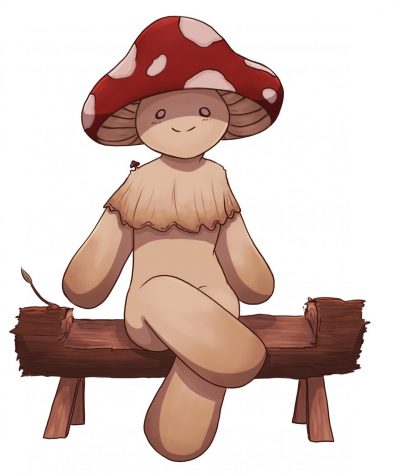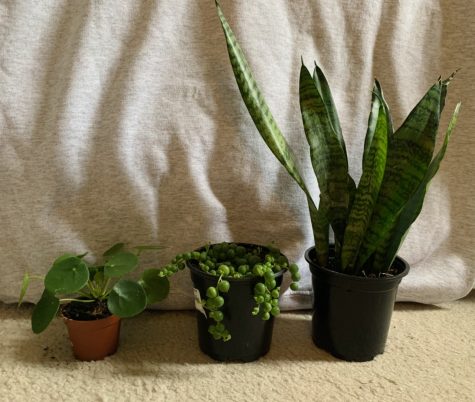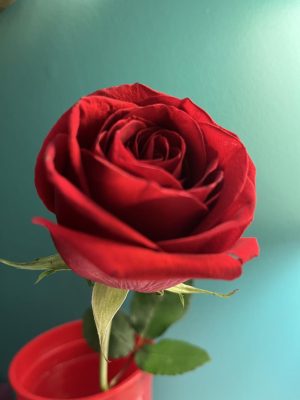Easy and Simple Plant Care
Different plants, along with instructions on their durability and care.
October 5, 2021
I have always had a rough time trying to keep my plants from drooping, losing leaves, or just giving up on me for seemingly no reason. So, if you are a fellow accidental plant harmer, this article is for you.
There are more resilient plants that work well in any kind of lighting, watering schedule, or potting setup, but that’s a lot to cover. Here’s a list to start and see what works best for you. Some plants do not require such strict guidelines when it comes to their care and some wilt if you look at them wrong. But once you get to know these simple categories and where your specimen falls on that scale, you can decide how closely you choose to tend to them.

HIGH MAINTENANCE
Starting with the most high maintenance plant, (not saying much) the Pilea plant requires specific care, requiring 12-16 hours of bright indirect sunlight a day, since their leaves will wilt in direct sunlight. Watering isn’t very vital for Pilea, as it only needs to be watered every one to two weeks. Overwatering will drown the roots, stopping them from absorbing nutrients or oxygen. If you forget the last time you watered, you can check how deep the soil is damp. If it remains damp past two inches, you should wait until it is fully dry to water again. This will be helped by the well-draining potting mix needed for this plant.
STRING OF PEARLS
Next is the String of Pearls, still quite high maintenance, but only needs six to eight hours of combined direct and indirect sunlight per day. It is also prone to overwatering, it’s best to only water once every two weeks and avoid misting them since the water won’t fully permeate the soil unless you are trying to grow cuttings from a separate plant and roots haven’t grown yet. A 3-to-1 ratio of soil to sharp sand or cactus potting mix helps it dry out fully between waterings, this can help to prevent root rot.
SNAKE PLANT

Finally, the easiest to manage is the snake plant, these are known to thrive off of neglect, they only need to be watered every 10 days or once the soil is fully dried out. They can be toxic to cats if ingested, so keep them out of reach. During the winter months, they can be watered only once or twice a month. They can grow in any light, but avoid strong direct sunlight since it can burn their leaves. Make sure to avoid random spikes or drops of temperature to not shock the plant. They are comfortable being crowded in their pots, so unless they are compact together they do not need to be repotted often.
Now that you have a basic understanding of these plants and their care, you can choose your own from your local Homestead Gardens or Home Depot to find your own plants of choice. Happy planting.





















































